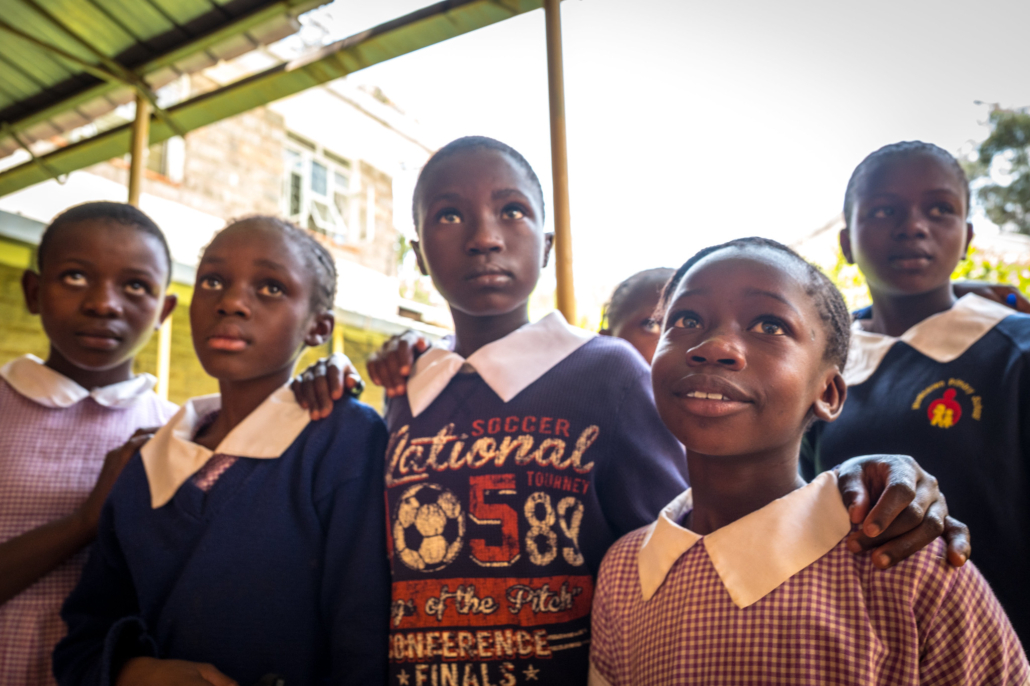How Huru International is Working to End Period Poverty in Africa

Huru International, a New York-based nonprofit organization, has been providing aid in order to end period poverty in Africa since 2008. The organization provides environmentally-safe, reusable menstrual products, along with education to help African women and students gain a deeper understanding of their own menstrual health. Huru also works to provide them with opportunities they otherwise would not have in order to combat period poverty in Africa.
Lorna Macleod founded Huru International in 2008 in order to fight HIV in Mukuru kwa Njenga. Prior to founding the organization, she noticed how many girls in the area were struggling to keep themselves clean and healthy during their periods. Macleod knew that many residents of Mukuru already struggled with basic hygiene because of their lack of “electricity, clean water, waste management and adequate medical care,” making period poverty inevitable in the area. Macleod wanted to combat this issue.
Education
Huru International uses a variety of educational methods in creating an “adaptable and accessible” curriculum to teach young women about their menstrual health and what they can do to keep themselves safe. The organization also works to educate boys about the menstrual cycle in order to create a generation of allies to their female peers and help them become respectful members of society joining the fight against period poverty in Africa.
Huru also includes education on the recognition and prevention of HIV/AIDS. Within these safe spaces, information about STD testing centers and contraceptives is provided to all – from youth classes to young adults.
Skills Development Program
Huru International provides a Skills Development Program, where East African women go through a four-month course to gain helpful skills in order to ensure a future of “economic stability, employment, financial independence, and optimism toward their future.” More than 65% of those involved with the program have no income.
The program tackles many issues present in East Africa:
- The Employment Epidemic: Exacerbated by the COVID-19 pandemic, many between the ages of 15-24 years old are finding it much more difficult to find a job. This problem is hitting the country’s girls much harder, with many dropping out of school when they reach “menarche,” or their first menstrual cycle. They are thus disproportionately losing job opportunities compared to their male counterparts.
- Skill Training: Because of the aforementioned drop in employment, Huru leads a “Skills Development Program” in order to train Kenyan women on skills that will give them a boost in certain careers, like textiles and tailoring. The program provides a plethora of lessons, including textile creation, entrepreneurship and health education.
- Employment Post-Program: Huru’s students take the National Industrial Training Authority (NITA) exam at the end of its four-month program. The NITA, a certification given to those who pass the exam, can result in an increase in pay at the student’s next job.
AmericaShare and Micato Safaris
AmericaShare is a nonprofit organization that emerged in 1986 that supports the children of Mukuru in Nairobi, Kenya by offering programs that provide education and community development. Huru International founder Lorna Macleod co-founded Micato, AmericaShare’s parent company.
The two legs formed the nonprofit Micato-AmericaShare, in order to provide aid to Kenyan citizens affected by the HIV/AIDS epidemic and the consequential poverty that followed.
Micato-AmericaShare also introduced the School Sponsorship Programme, where those who have traveled with Micato Safaris can sponsor a child and allow them to attend a high-quality boarding school.
Conclusion
Huru International has reached more than 465,000 people, provided 210,000 of its menstrual kits – coined “Huru Kits” – and has created 1.7 million reusable pads since its creation in 2008. The organization reports that out of the girls who have received a Huru Kit:
- They became three times less likely to miss school when on their period; 90% of girls report that they have missed less school because of menstrual problems.
- About 80% reported seeing an improvement in academics.
- Additionally, 90% felt more confident about their future.
With Huru’s continuous support, supplies and educational programs, the mission to end period poverty in Africa can become a more pragmatic goal instead of a far-fetched dream.
– Aspen Oblewski
Photo: Flickr
